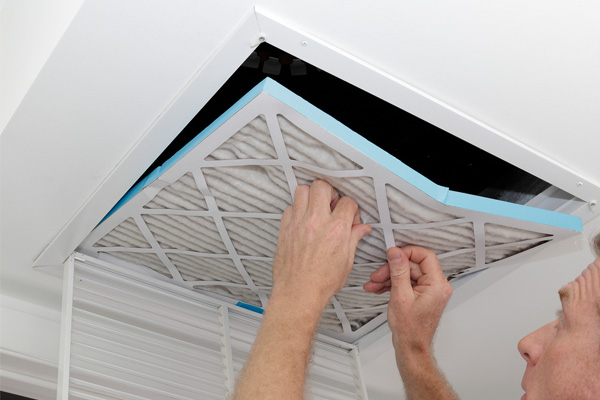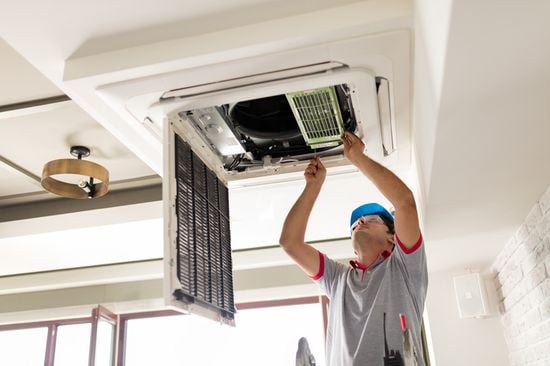In the quest to maintain a healthy and pleasant indoor environment, preventing odor in ducts is crucial. Ducts that are not properly maintained can develop unpleasant smells that affect the overall air quality of homes and businesses. This comprehensive guide offers effective strategies and insights to keep your ducts odor-free.

Understanding the Causes of Odor in Ducts
Before delving into maintenance tips, it is essential to understand why odors develop in ducts. Common causes include the accumulation of dust and debris, mold growth, pet hair, and moisture. These factors not only cause unpleasant odors but can also compromise the efficiency of your HVAC system.
The Role of Moisture in Odor Formation
Moisture is one of the primary culprits in odor formation. It creates an ideal environment for mold and mildew to thrive, which can lead to a musty smell permeating through your ducts. Ensuring that your ducts remain dry is a crucial step in odor prevention.
Impact of Dust and Debris
Dust and debris can accumulate over time in your ductwork. These particles not only obstruct airflow but also become a breeding ground for bacteria and mold, contributing to foul smells. Regular cleaning can mitigate this issue.
Effective Duct Maintenance Practices
To prevent odors, implementing regular maintenance practices is key. Here are some maintenance tips you can follow:
Regular Cleaning
Routine cleaning of your ductwork is essential. This process should include removing dust, debris, and any other particles that might contribute to odors. Consider professional cleaning services for thorough results. For more detailed cleaning steps, visit this duct cleaning guide.
Inspecting for Mold and Mildew
Regular inspections can help identify any mold or mildew presence early. Pay special attention to areas with high humidity levels, as they are more prone to these issues.
Sealing Leaks
Leaks in ductwork can allow moisture and contaminants to enter, exacerbating odors. Ensuring that all ducts are properly sealed will help maintain a clean airflow and prevent external elements from affecting your ducts.
Choosing the Right HVAC Filters
The type of filters you use in your HVAC system can significantly impact odor control. High-quality filters can trap more particles, keeping your ducts cleaner for longer.
Filter Maintenance and Replacement
Regularly replacing HVAC filters is a simple yet effective way to maintain air quality and prevent odors. Ensure that you choose filters appropriate for your system and replace them according to the manufacturer’s recommendations.
Professional Duct Cleaning Services
While some maintenance tasks can be performed independently, hiring professional duct cleaning services occasionally is advisable. Professionals have the tools and expertise to clean and inspect ducts thoroughly, ensuring optimal performance and air quality.
Benefits of Professional Cleaning
Professional cleaning services can access areas that are difficult to reach, ensuring that your entire system is free from contaminants. They also use specialized equipment that can effectively remove stubborn particles and odors.
Preventive Measures to Keep Ducts Odor-Free
In addition to regular maintenance, there are preventive measures you can take to keep your ducts odor-free:
Humidity Control
Maintaining appropriate humidity levels in your home or business can prevent mold growth. Consider using dehumidifiers in areas prone to moisture accumulation.
Regular Ventilation
Ensuring proper ventilation can help reduce odor buildup. Regularly open windows and doors to allow fresh air to circulate throughout your space.
Conclusion
By following these preventing odor in ducts maintenance tips, you can ensure a fresh and pleasant indoor environment. Regular maintenance, coupled with preventive measures, will help you avoid odors and maintain optimal air quality. For more insights and step-by-step guides on duct maintenance, check out this duct maintenance checklist.

FAQs
How often should I clean my ducts?
It is recommended to clean your ducts every three to five years. However, if you notice persistent odors or reduced airflow, consider more frequent cleaning.
What are the signs of mold in ducts?
Signs of mold include a musty smell, visible mold growth around vents, and increased allergy symptoms. If you suspect mold, it is advisable to contact a professional for inspection and cleaning.
Are there specific filters that help with odor control?
Yes, using high-efficiency particulate air (HEPA) filters can improve odor control by trapping more particles and preventing them from circulating through your ducts.
This article contains affiliate links. We may earn a commission at no extra cost to you.